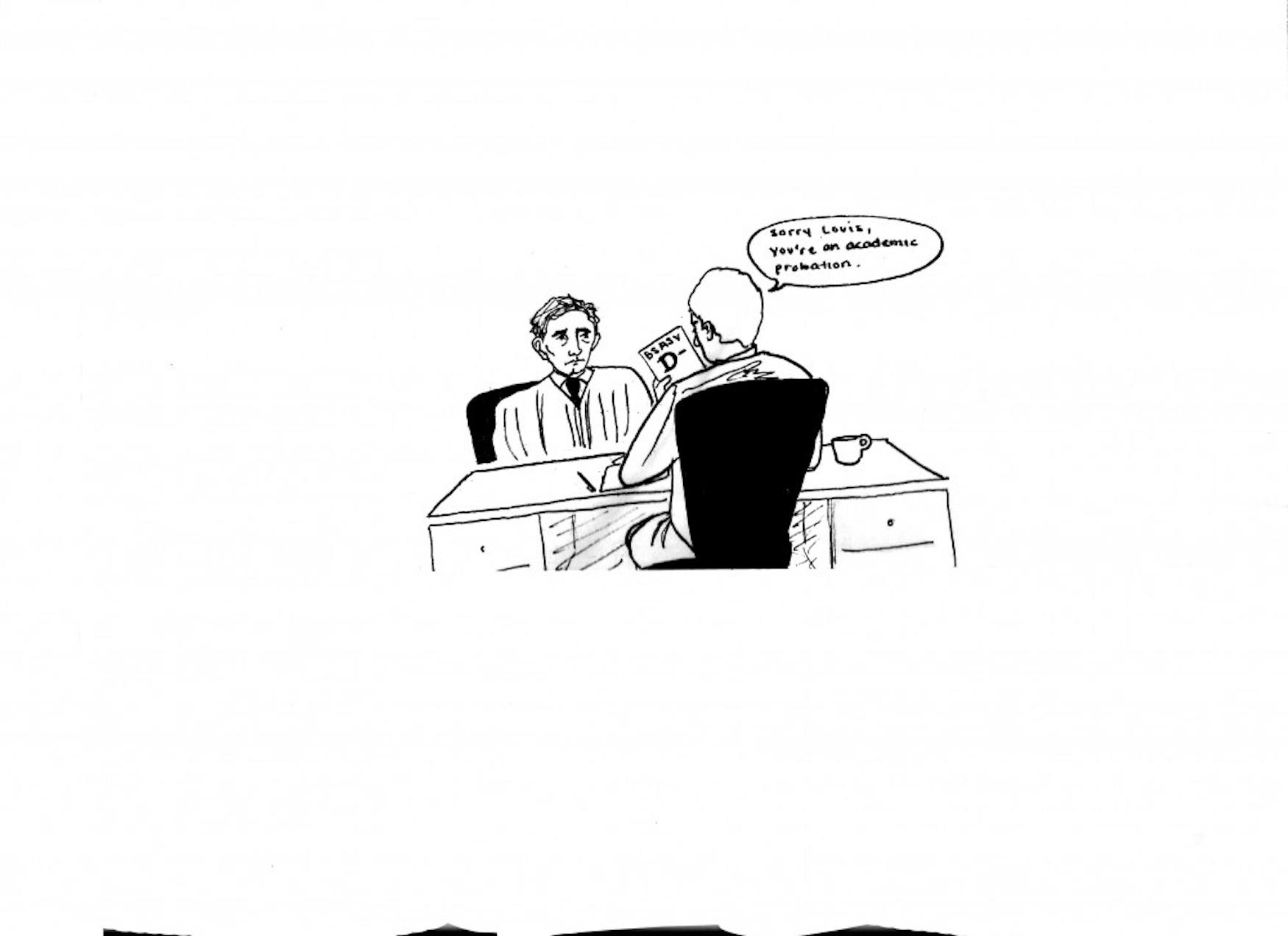EDITORIAL: Review university report card
Last Thursday, Brandeis Students Against Sexual Violence released a progress report, grading the University on 11 aspects of its response to recent activism and conversation about sexual assault on campus. The report is comprehensive and specific. This editorial board commends B.SASV for their efforts to hold the University accountable for protecting and supporting survivors of sexual assault, as well as generating discussion about the issue.
We encourage students and all other members of the Brandeis community to read the progress report and to talk and think about what they can do to address the problems that remain. The average grade out of the 11 items described on the report was a D- compared to an F on last year’s report, showing that while there has been slight progress, the University is still severely lacking in its resources and support.
In particular, we support item number six in the progress report, which states that Brandeis should mandate sexual violence training for every member of the Public Safety department, and improve transparency among public safety officers. It is important that students be able to trust members of the Public Safety department, and there is still more that the University can do to encourage a healthy relationship between students and officers. For example, as per the report, all of the public safety team, and not just their Sexual Assault Investigative team, should receive formal sexual violence training. Further, the University should implement an online system for students to provide feedback on their dealings with Public Safety, which allows them to identify individual officers with whom they have had a positive or negative experience.
We also support item one, which calls for more clear and accessible information on existing reporting paths, options and resources.
There is still inaccurate and confusing language on various University websites, which might lead students to think, among other misconceptions, that survivors of sexual assault are required to report to University police as opposed to the other options available to them. While this item received one of the highest grades in the progress report, a B-, these problems should be dealt with and rectified immediately.
Despite the overall high quality of the report’s analysis and suggestions, we do take small issue with one part of it. In point five, while we agree that bystander interventions should be made mandatory for “student leaders,” we do not agree that any particular group should be singled out, as athletes currently are in the present language.
It might instead make sense to propose that all students go through bystander training during their first year at Brandeis. Bystander training is a smart preventative step that should be simple to implement and can help create a climate of awareness about sexual assault at Brandeis.



Please note All comments are eligible for publication in The Justice.